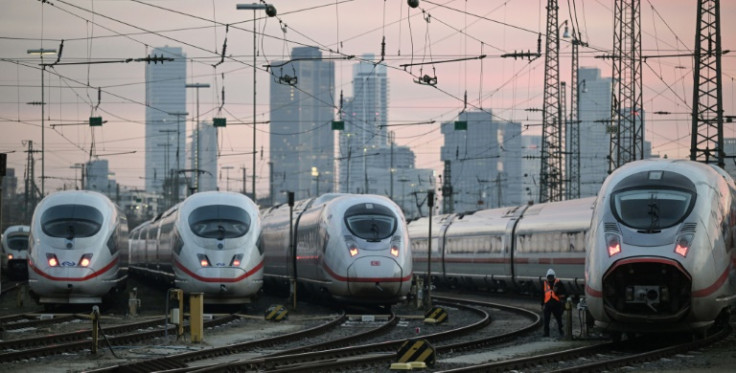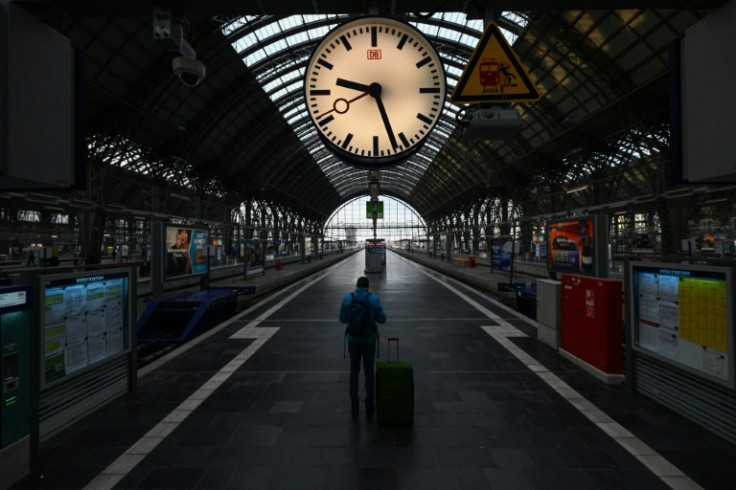
Nationwide strikes brought German transport to a standstill Wednesday, with railway workers on a three-day stoppage while farmers on tractors blocked autobahns in a bitter protest over subsidy cuts.
The ill-tempered sector disputes mark the start of what is expected to be a challenging year for Chancellor Olaf Scholz's unwieldy three-way government as it struggles with a weak economy and sinking popularity.
The GDL train drivers union called the strike on cargo as well as passenger routes after talks with public rail operator Deutsche Bahn hit an impasse.
Deutsche Bahn warned of "massive" disruptions to service until Friday evening, urging travellers to "avoid any unnecessary journeys" during the strike.
At Berlin's central station, student Philipp Kolb, 22, said the strike had complicated his travel plans.
"I was supposed to take the train to Hamburg at 6 am," he said. "Now I have to push the trip back by three hours but I think other people were hit harder than me."
The company lost in a last-ditch bid to halt the industrial action in the courts after a Frankfurt tribunal gave the union the green light late Tuesday.
Following work stoppages in November and December, the current strike marks the longest in the protracted dispute over pay and working hours.
Beyond salary increases to offset inflation for the 10,000 employees it represents, the union is seeking a reduction to a 35-hour, four-day work week.
Deutsche Bahn said last month it had made an offer of an 11-percent wage increase going into talks, as well as a "bonus to compensate for inflation" of up to 2,850 euros ($3,120).
The operator said Sunday it had come back with an improved offer last week which it said represented a "major step forward" regarding union demands on working hours.
But GDL chief Claus Weselsky dismissed the latest offer by the employer in an interview with public broadcaster ZDF Wednesday as a "provocation".
While stressing he was "ready for compromise", Weselsky warned that "if there is nothing by Friday, we will take a break and then continue the fight".
Deutsche Bahn last year also clashed with the EVG rail union, which represents some 180,000 non-driver rail personnel, reaching an agreement in late August.
The railway strike, which hit long-distance, regional and commuter lines, comes amid a week-long protest by farmers over an end to tax breaks as the government seeks to trim spending.
Travellers who hoped to beat the strike by taking their cars ran into further obstacles presented by angry farmers staging motorway blockades across the country with their tractors since Monday.
The sector has been up in arms over government plans to withdraw certain tax breaks for agriculture this year, which were announced after a shock court ruling forced the government to find savings in the 2024 budget.








